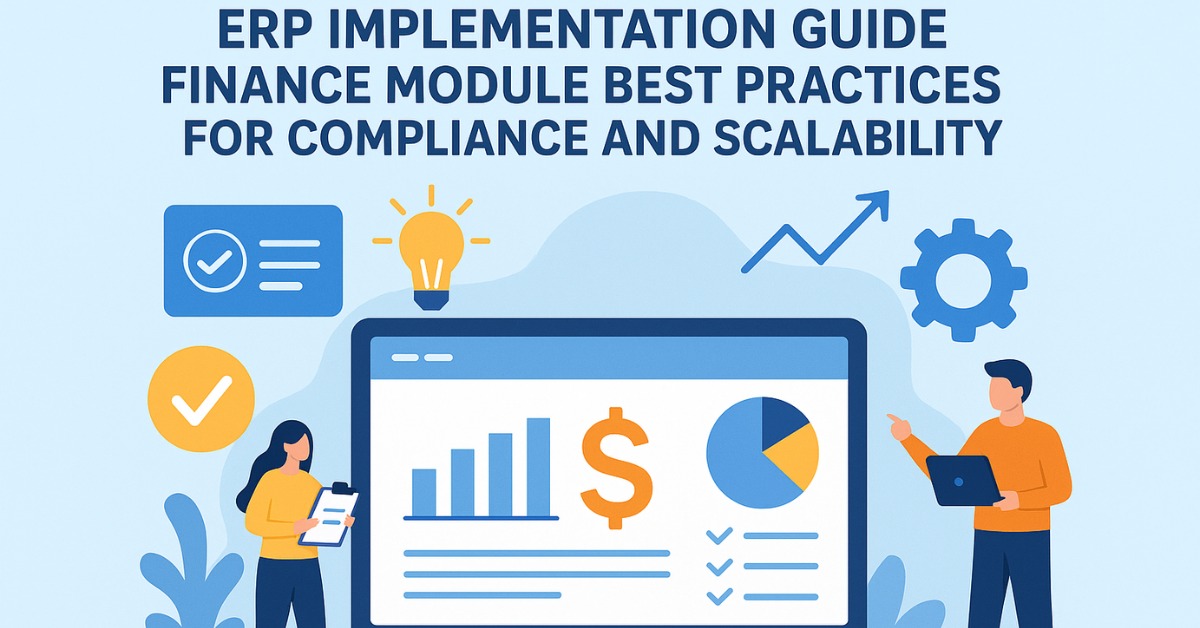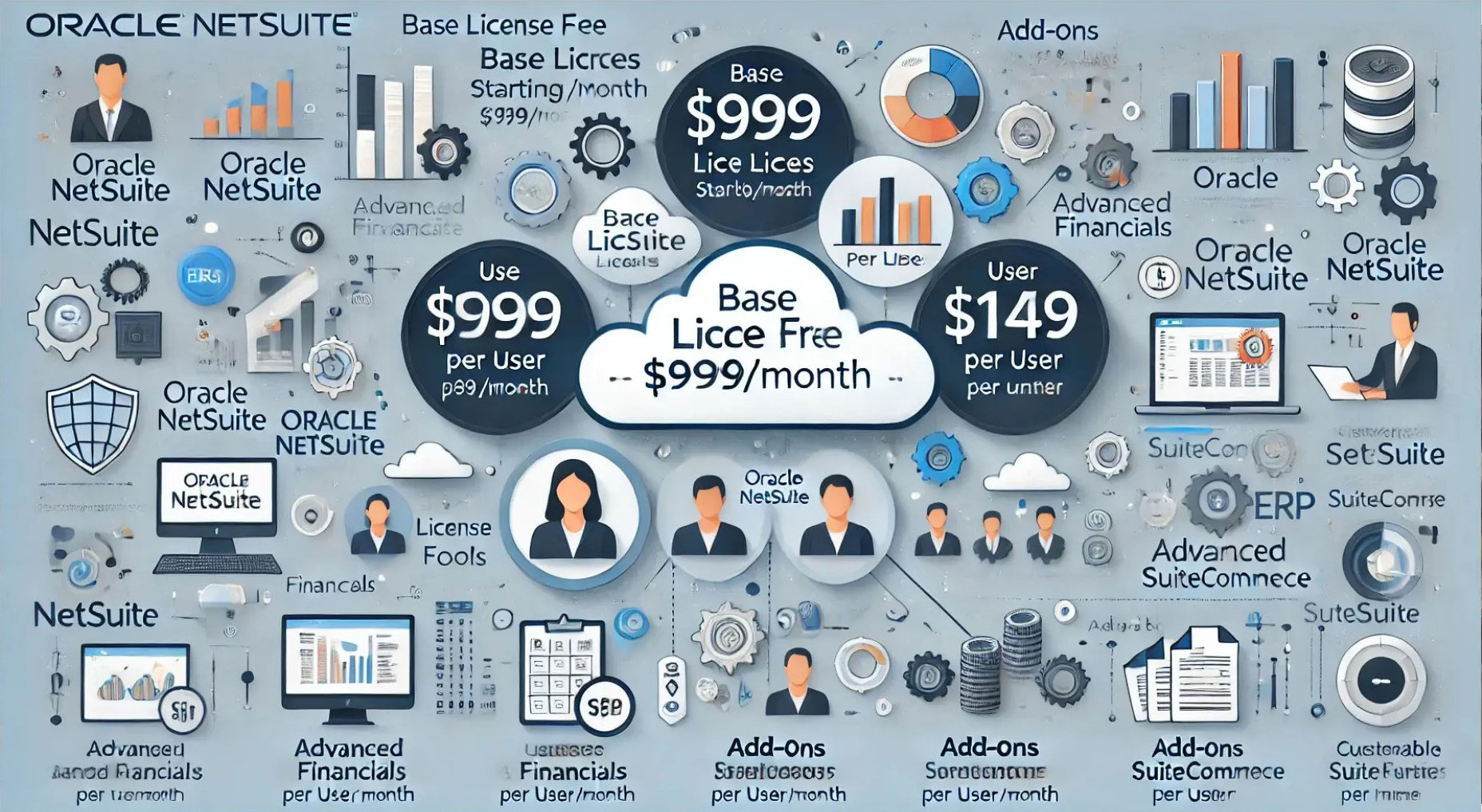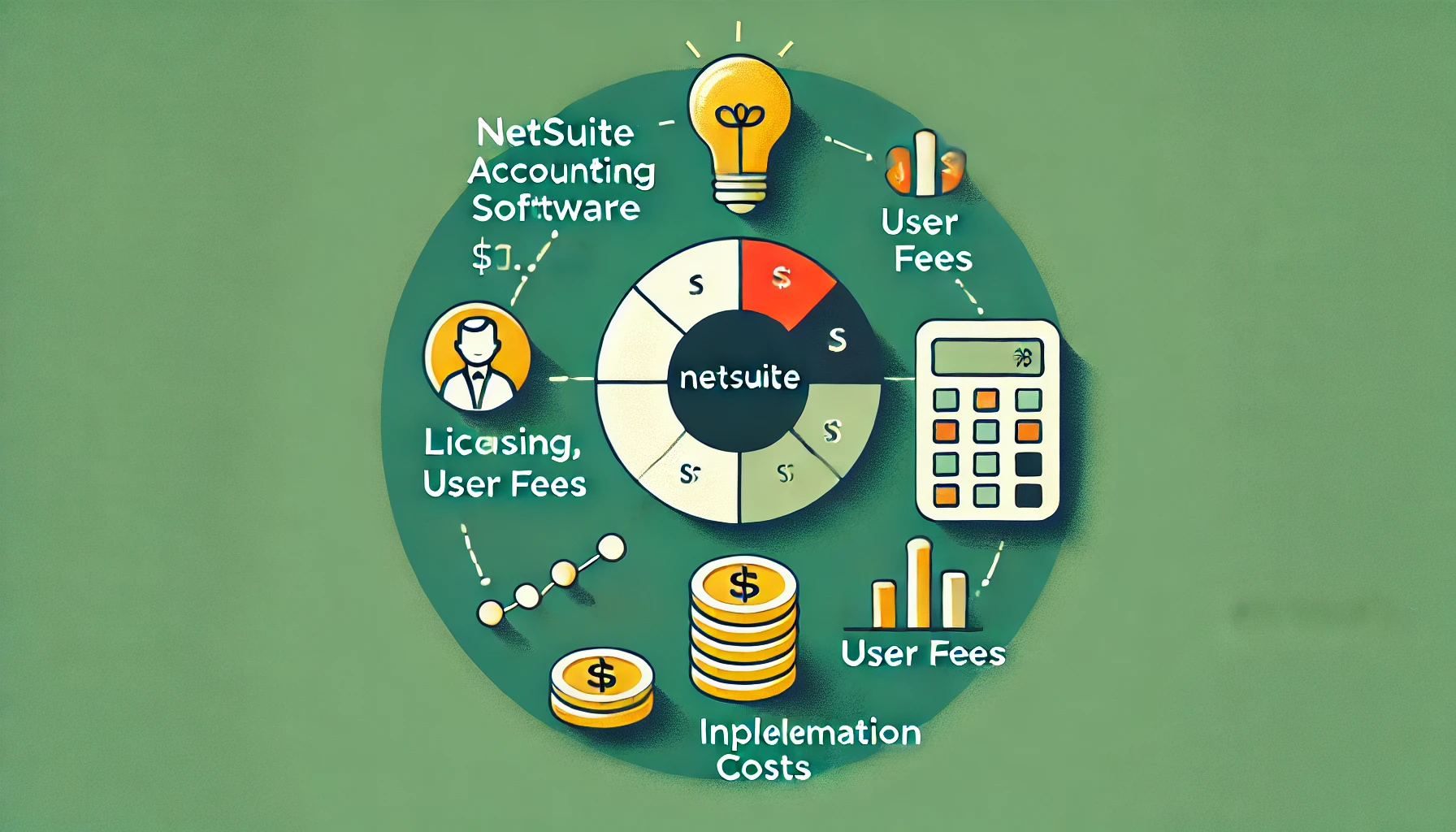The finance module is one of the most critical components of any ERP system. It manages financial transactions, accounting, reporting, and compliance activities, making it the foundation of business stability and growth. A well-executed finance module implementation ensures accuracy in financial data, supports regulatory compliance, and enables long-term scalability.
This ERP implementation guide focuses on the finance module and outlines best practices for compliance and scalability. By following these practices, organizations can reduce risks, improve efficiency, and build a financial management system capable of supporting growth. Whether a business is a startup preparing for expansion or an established enterprise streamlining operations, a successful ERP finance module implementation can become a competitive advantage.
The finance module ensures transparency, accuracy, and accountability in business operations. Without strong financial management, even the best business strategies fail.
1- Centralized Financial Data: The finance module integrates data from all departments, ensuring a single source of truth for reporting and decision-making.
2- Regulatory Compliance: ERP systems support compliance with accounting standards and tax regulations, reducing risks of penalties or legal disputes.
3- Accurate Reporting: Automated financial reports give management clear visibility into the company’s financial health and performance.
4- Scalable Operations: The finance module supports growth by handling complex transactions, multiple currencies, and evolving compliance requirements.
Organizations often face difficulties while implementing the finance module. Understanding these challenges is the first step in overcoming them.
1- Data Migration Errors: Inaccurate or incomplete financial data during migration can cause long-term reporting issues and compliance risks.
2- Complex Compliance Requirements: Adhering to local and international accounting standards can be difficult without proper system configuration.
3- Integration with Other Modules: The finance module must connect seamlessly with inventory, HR, procurement, and sales modules, making integration a significant challenge.
4- User Resistance: Finance teams may resist new processes, especially when shifting from manual systems to automated ERP workflows.
5- Cost and Time Overruns: Poor planning may lead to extended timelines and higher costs, affecting the overall ROI of the ERP implementation.
Best Practices for Compliance in the Finance Module
Regulatory compliance is a top priority for any finance module implementation. ERP systems must be configured carefully to align with industry regulations and financial reporting standards.
1- Adopt Standardized Accounting Practices: Configure the ERP finance module in line with Generally Accepted Accounting Principles (GAAP) or International Financial Reporting Standards (IFRS) to ensure consistency and compliance.
2- Automate Tax Compliance: Use built-in ERP functionalities for tax calculations, filing, and reporting. Automation reduces human error and ensures timely compliance with local tax laws.
3- Audit Trail Management: Ensure that the ERP finance module maintains complete audit trails for all financial transactions. This feature is crucial for both internal audits and external regulatory reviews.
4- Data Security and Access Control: Restrict access to sensitive financial information through role-based permissions. Proper data governance reduces risks of fraud and unauthorized activity.

Best Practices for Scalability in the Finance Module
As businesses grow, their financial systems must evolve. Scalability ensures the finance module can support expansion without disruption.
1- Cloud-Based Deployment: Implementing the finance module on the cloud provides scalability, flexibility, and easier integration with new tools.
2- Multi-Currency and Multi-Entity Support: Configure the ERP finance module to handle multiple currencies and entities, allowing businesses to expand globally with ease.
3- Modular Upgrades: Adopt a phased approach to ERP implementation. Modular upgrades make it easier to expand finance functionalities as the business grows.
4- Analytics and Forecasting Tools: Use AI-powered analytics integrated with the finance module to forecast financial performance and support long-term growth strategies.
Steps for a Successful ERP Finance Module Implementation
Implementing the finance module requires a structured approach to ensure compliance and scalability.
1- Define Objectives Clearly: Establish specific goals for the finance module such as improving reporting accuracy, enhancing compliance, or preparing for global expansion.
2- Data Cleansing and Validation: Ensure that all financial data is clean, consistent, and verified before migration to avoid issues post-implementation.
3- Employee Training and Change Management: Provide comprehensive training for finance teams and communicate the benefits of the ERP system to reduce resistance.
4- Testing and Quality Assurance: Test the finance module extensively before full deployment. Validate reporting accuracy, tax calculations, and compliance workflows.
5- Continuous Monitoring and Optimization: Track key performance indicators such as closing cycle time, reporting accuracy, and compliance adherence to optimize system performance.
Future Trends in ERP Finance Module Implementation
The finance module is evolving with new technologies and regulatory frameworks. Businesses must stay updated to remain compliant and scalable.
1- AI and Machine Learning Integration: AI-powered ERP finance modules can detect anomalies, prevent fraud, and predict cash flow more accurately.
2- Blockchain for Secure Transactions: Blockchain technology is being integrated into ERP systems to provide secure and transparent financial records.
3- Sustainability Reporting: Finance modules will increasingly support ESG (Environmental, Social, Governance) reporting to meet stakeholder demands and compliance requirements.
4- Robotic Process Automation (RPA): RPA integrated with ERP will automate repetitive finance tasks such as reconciliations, vendor payments, and invoice processing.
Conclusion
The finance module is the backbone of any ERP system, and its successful implementation is critical for compliance, accuracy, and scalability. By following best practices such as adopting standardized accounting principles, automating compliance, ensuring secure audit trails, and planning for scalability, businesses can transform their financial management.
Challenges like data migration, compliance complexity, and integration issues can be overcome with proper planning, training, and continuous monitoring. The future of ERP finance modules lies in intelligent automation, predictive analytics, and global scalability. Businesses that implement the finance module strategically will not only remain compliant but also position themselves for long-term growth and competitive advantage.




